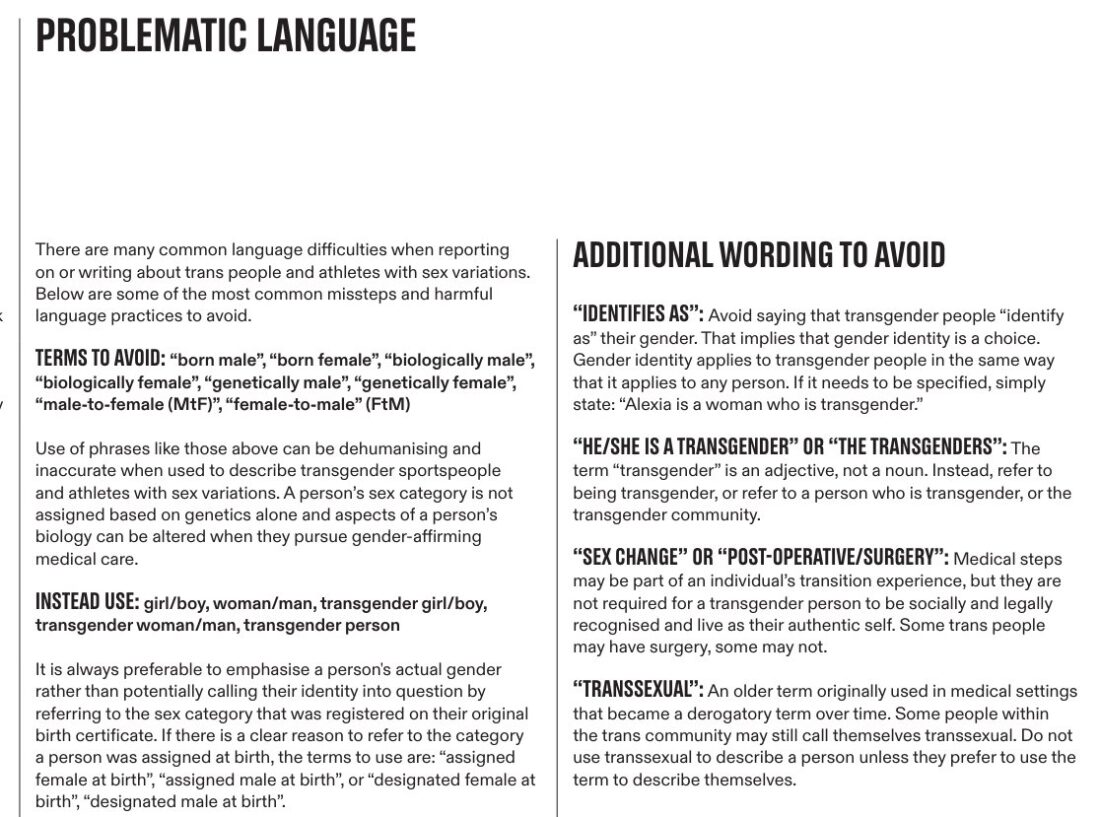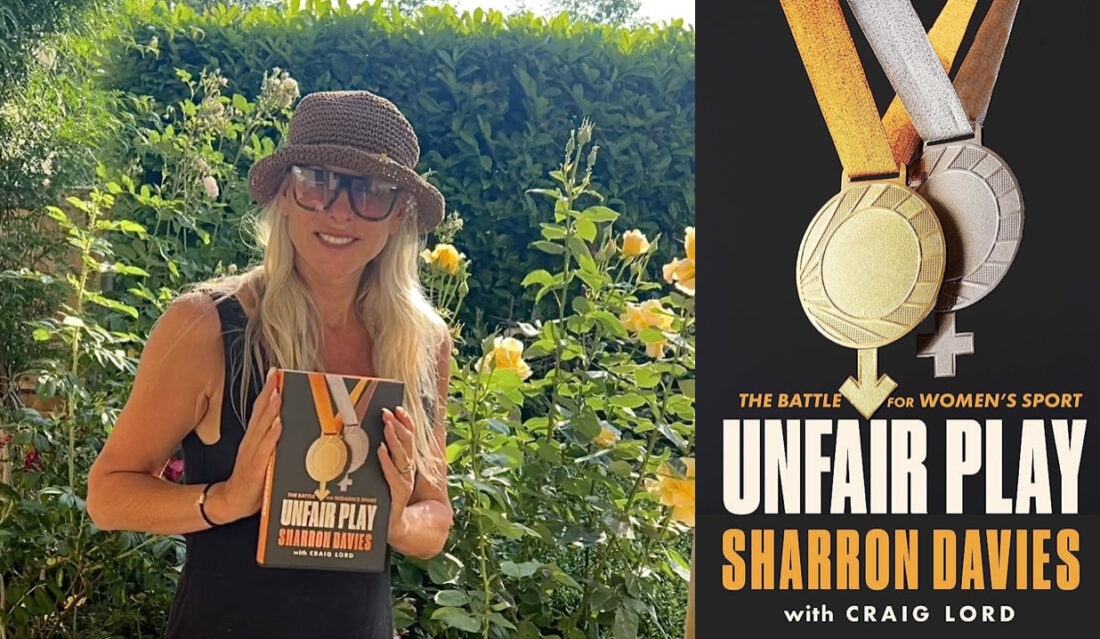IOC Thought Police Tell Media To Avoid Truths Like ‘Biologically Male’ Ahead Of “Parity” In Paris

The International Olympic Committee (IOC) has issued some thought-police opinions on the truths we’re not supposed to tell, “biologically male”, while highly significant to sports performance and the very reason why transwomen cannot race in female competition at the Olympic Games, among “terms to avoid”.
The Problematic Language section of the IOC’s “Portrayal Guidelines”, which the organisation describes as “a key part of its efforts to promote inclusivity and equality in the media’s portrayal of athletes at the Olympic Games Paris 2024”, effectively invites journalists to avoid telling the truth.
Truths to avoid include “born male”, born female, biologically male, biologically female, genetically male, genetically female, male-to-female and female-to-male.
The guidelines can be ignored by media and federations alike, as has been the case with the IOC’s inclusion framework that suggests fair play is possible when biological males are granted a ticket to female sport. At the same time, the IOC grants international federations the right to set their own rules in accordance with the nature of the sports they regulate.
Rules set by World Aquatics, swimming’s global regulator, have been in place for two years this month. They ring-fence the women’s category for females only by making the open/male category available to all biological males who experienced Tanner Stage 2 puberty.
At a time when Lia Thomas is challenging such rules, it would be impossible and ludicrous not to mention that Thomas is biologically male, a status essential to understanding why the World Aquatics rules, and similar regulations in at least seven other Olympic sports, make the women’s sex-based category the preserve of female athletes.
The IOC begins its latest guidelines fail to refer to sex in any term beyond “sexual orientation”, gender their word of choice even in the context of “parity” between females and males, with the same number of women and men entered in competition for the first time in Olympic history.
The “portrayal”: of truths guidelines begin:
With Paris 2024 set to be the first Olympic Games to achieve full gender parity on the field of play, the updated Portrayal Guidelines seek to raise awareness about the differences in how sportswomen and women’s sport are portrayed in comparison to their male counterparts. The guidelines provide practical checklists and advice to help ensure gender-equal and fair representation of all athletes across all forms of media and communication.
The two weeks of Olympic coverage are a unique opportunity to generate new strong, positive and diverse role models, and to promote balanced coverage and fair portrayal of sportspeople in all their diversity – irrespective of gender, race, religion, sexual orientation or socio-economic status.
Key updates for 2024
Building on previous versions of the guidelines, which were first published in 2018 and updated in 2021, the latest edition is designed to foster more inclusive and respectful sports coverage, and includes updated examples and references that reflect the latest in gender-equal portrayal practices.
An annex that provides definitions, language practices, and considerations for respectful and inclusive coverage of transgender and non-binary participants, plus athletes with sex variations, is also included. This annex follows the release of the IOC Framework on Fairness, Inclusion and Non-Discrimination on the Basis of Gender
Identity and Sex Variations in November 2021.
That framework has been roundly slammed by experts. Essential reading:
The International Olympic Committee framework on fairness, inclusion and nondiscrimination on the basis of gender identity and sex variations does not protect fairness for female athletes
Authors:
Tommy R. Lundberg, Ross Tucker, Kerry McGawley, Alun G. Williams, Grégoire P. Millet, Øyvind Sandbakk, Glyn Howatson, Gregory A. Brown, Lara A. Carlson, Sarah Chantler, Mark A. Chen, Shane M. Heffernan, Neil Heron, Christopher Kirk, Marie H. Murphy, Noel Pollock, Jamie Pringle, Andrew Richardson, Jordan Santos-Concejero, Georgina K. Stebbings, Ask Vest Christiansen, Stuart M. Phillips, Cathy Devine, Carwyn Jones, Jon Pike, Emma N. Hilton
The IOC’s guidelines:

Unfair Play – The Truths We’re Told To Avoid
Unfair Play, the book by Sharron Davies and Craig Lord listed for the United Kingdom’s two biggest sports book of the year prizes since publication in June last year, charts the woeful history of the IOC’s relationship with female athletes, including discrimination and doping sagas dating back many decades and pertinent to this day. The PaperBack is out in July.